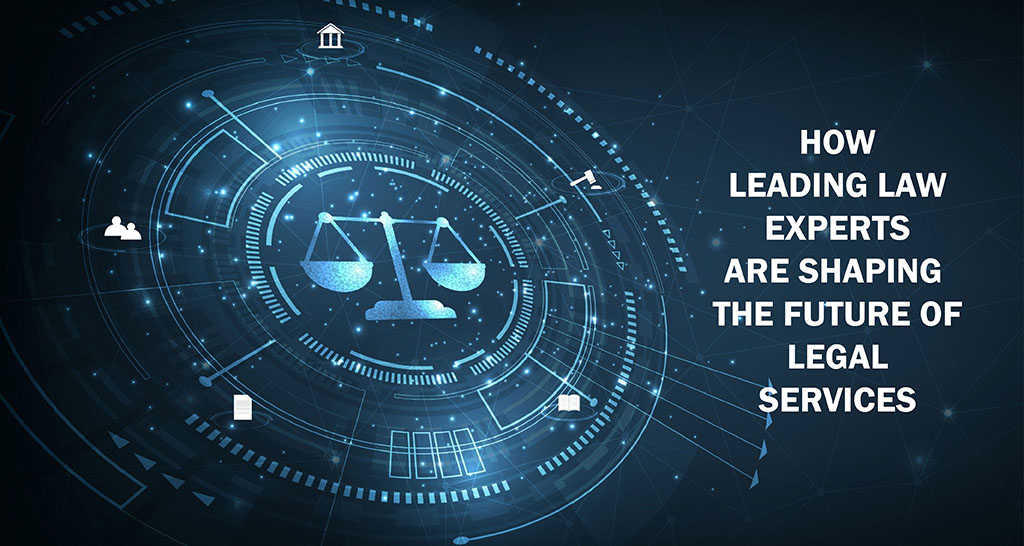The legal sector is experiencing a significant transformation fuelled by technological advancements, changing client demands, and a rethinking of conventional legal practices. As the legal environment transforms, prominent legal professionals whether they are veteran lawyers, legal technology specialists, or leaders of law firms are crucial in influencing the future of legal services. By adopting innovative approaches, evaluating business models, and promoting emerging technologies, these professionals are changing the way legal services are provided, enhancing their accessibility, efficiency, and focus on client needs.
- Embracing Legal Technology and AI
Artificial Intelligence (AI) and advanced technologies are increasingly shaping the legal field. Top legal professionals are utilizing AI tools not just to automate mundane tasks but also to improve legal analysis, research, and decision-making processes. These technologies have the capability to analyze large volumes of legal information, detect trends, and help lawyers make more precise outcome predictions. As AI becomes further integrated into legal practices, law experts are instructing their colleagues on how to employ it to enhance, rather than substitute, human judgment.
- Redesigning Legal Business Models
A significant aspect in which legal professionals are influencing the future of legal services is through the evolution of business models. Law firms have historically utilized a billable-hour system; however, this approach is coming under fire for its inefficiency and lack of clarity. Prominent attorneys and legal practitioners are investigating various alternative fee structures (AFAs), such as fixed fees, contingency fees, and subscription-based models, which better align the interests of both attorneys and their clients.
The change in pricing model is being propelled by clients’ desire for more consistent and budget-friendly legal services. Clients, especially those in the corporate sector, seek increased clarity regarding legal expenses and want to guarantee they receive good value for their investments. Legal professionals who are aware of these evolving demands are not merely responding to the market but are proactively at the forefront of transforming how law firms bill for their services.
- Expanding Access to Justice
The challenge of access to justice has persisted, with numerous individuals and businesses unable to pay for quality legal services. Pioneering legal experts are tackling this issue by utilizing technology to deliver affordable legal support to underrepresented communities. Innovative solutions such as online legal advice platforms, document automation, and virtual consultations are being developed by legal tech startups, guided by progressive legal professionals, thus making legal services more reachable to a wider audience.
- Fostering Diversity and Inclusion in Legal Leadership
As the legal field progresses, diversity and inclusion (D&I) have become key focuses for its future. Prominent legal experts are striving to foster a more inclusive atmosphere within their firms while also aiming to impact the larger legal landscape. By emphasizing diverse viewpoints in leadership roles, legal professionals are making certain that the legal sector mirrors the communities it represents, which is essential for achieving fairer and more equitable results.
Law firms that prioritize diversity and inclusion are discovering that they can better serve a diverse clientele, as teams with varied backgrounds excel at grasping different cultural and legal viewpoints. Professionals in the legal sector are also advocating for mentorship and leadership programs that assist underrepresented groups in the field of law.
- Transforming Legal Education and Professional Development
As the legal field adjusts to the evolving demands of the market, law schools and legal professionals are reconsidering the training and education of lawyers. Prominent legal authorities are pushing for more interdisciplinary learning that merges foundational legal expertise with skills in technology, business, and data analysis. Legal education is transforming to equip future lawyers not only to practice law but also to grasp the larger business and technological contexts in which they will function.
The emergence of online legal education platforms, including Harvard’s Online Law Program and MIT’s Digital Transformation in Law, exemplifies how legal professionals are transforming the landscape of legal training. These platforms provide adaptable, cutting-edge learning experiences that enable legal practitioners to remain competitive in a more digital and global environment.
Conclusion
The future of legal services is being influenced by a new wave of legal professionals who recognize that conventional legal practices must transform to address the needs of an evolving society. By embracing innovative technologies, creating new business models, and prioritizing the enhancement of access to justice, these professionals are not just reacting to changes in the legal sector but are instrumental in instigating those transformations. As the legal industry continues to evolve, the vision and guidance of these progressive experts will be vital in ensuring that the legal services of the future are more accessible, efficient, and effective than ever before.










